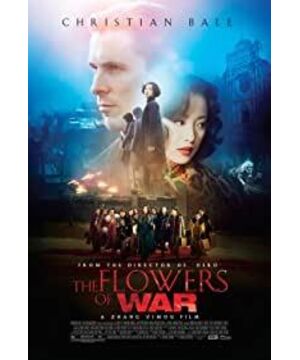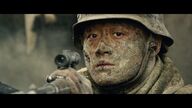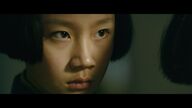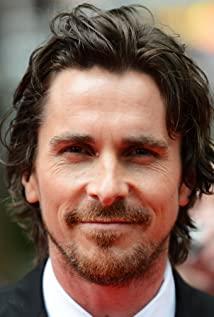As a film project, the story background of "The Thirteen Hairpins of Jinling" has many selling points, but at the same time, it also interweaves obvious sensitive areas. While grasping the historical space and heavy events, it is easy to fall into the quagmire of moral kidnapping. Originally, just the words "Nanjing Massacre" could evoke the pain and shame of the Chinese people, not to mention that the atrocities of the Japanese army, whether they are described in words or reproduced in pictures, will directly stimulate the audience and make them nervous and sad. , tears, clenched fists, but this has nothing to do with whether a work is good or not. Therefore, Yan Geling should have spent a lot of thought, and after checking the materials, used a cautious and even cunning method to write this novel with metaphors throughout. Using Shujuan's reminiscence tone, the narrative is limited to the smallest scope as much as possible. Fifteen days after the city was destroyed, the ravaged city was accompanied by the maturity of young girls. Everyone in Winchester Church was gradually tormented by despair, destroyed by each other's hurt, and finally compared all love and hate, disgust and envy, pain and warmth, In the choice of life and death, we saw the greatness and humility of those brothel women. From an individual historical perspective, Yan Geling's narrative is beyond reproach.
The handling of the film can be regarded as removing all these efforts and reconstructing a thrilling and sensational story, from the scenes of bloody battles to the unrestricted violence to the subtle eroticism in the cover, so as to capture the selling points one by one. In fact, in the past, Zhang Yimou's really excellent works did not rely on the plot, but this time he obviously wanted to make the story more "Hollywood". John Miller, played by Kristen Bell, is an American who comes to church to repair the remains of a priest. His moral starting point is very low. He stays in church overnight to take advantage of it. Bargaining for a deal seems to be all about making his eventual heroic process worthwhile. Indeed, at a critical moment, he stepped forward and pretended to be a clergyman to prevent the Japanese army from ravaging the church (albeit with little effect), and made a mistake. But unfortunately, the impetus for him to do so was vague. Audiences can of course look for motives for Miller for any reason, such as "sudden discovery of conscience", but due to the initiative of this character throughout the whole film, the less convincing shaping makes the originally thin plot more blunt. Considering that the actor is a Hollywood star, it is necessary to fill his time as much as possible, so that the 100 million yuan that is taken away can be worthwhile. Bell did not have any difficulty in playing this role, and he was obviously more comfortable in the first half.
Liu Heng and Yan Geling made adjustments that could be done in the field of screenwriting. There is a lot of religious overtones in the text. Church, singing, Christmas, sacrifice and redemption, and even thirteen, a number that is obviously not simply added to the original "Dream of Red Mansions". Of course, for various reasons, the religious elements are only left in the audiovisual, and the absence of the old priest weakens the significance of the church coordinates. Of course, there are also some repairs to make up for the shortcomings. For example, the original replacement was decided in a hurry. The various big wavy hairstyles of the thirteen hairpins are obviously completely different from those of the female students. In the movie, one night was set aside for Bell to ritually cut everyone's hair. Obviously more reasonable. And the final writing on the role of George Chen is finally a sad footnote beyond the thirteen hairpins.
Zhao Yumo is the absolute core, and the actress Ni Ni's performance is very high. Although she is charming, it is enough to convince her that she is a woman with an active and dedicated personality. However, the movie left too much time for Miller and Yumo to chat. The movie omits the details of life such as the difficulty of eating and drinking. In an environment where the shadow of death and the pressure of survival are not obvious, the two are tempted from flirting. To the point where there is a little sympathy for each other, it is vividly displayed. As usual, love is to be photographed, but the price is that the interaction space between the two groups of female students and prostitutes is greatly occupied, and the strength of the final exchange is also very obviously weakened. Also affected are Cardamom and Pu Sheng. This feeling was directly explained by force, so her whole motive for going out was naturally deliberate. In the final analysis, the time is limited, except for Yu Mo, the rest of the people are relatively face-to-face. And Shujuan, who was staring at her all the time, was even more submerged in a dazzling halo. So in fact, the audience is separated by Shujuan farther, and the only way to shorten the distance is to rely on the efforts of the actors and the special scale of the electronic inspection's performance of the Japanese army's violence.
As a nation's misfortune, it is still hard to face up to, so in addition to keeping in mind, we should ensure that it will not recur. And the misfortune of a character is always there, but it seems that he has never lived. This seems to be the consequence of "The Thirteen Hairpins of Jinling" taking the commercial route safely under the premise that the hardware level is good in all aspects. In the film, many of the soldiers of the National Army with their gray heads and flesh and blood are played by well-known male stars. The other reason, of course, is that the red carpet needs them.
View more about The Flowers of War reviews











